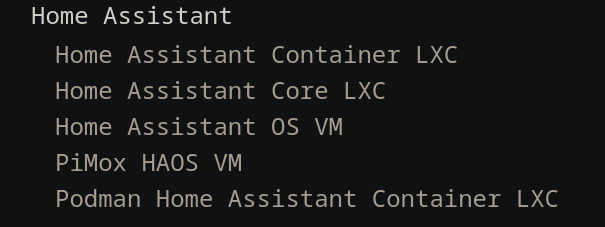

14 fucking minutes and there’s no response? Oh noes.


14 fucking minutes and there’s no response? Oh noes.
Yah, it sounds like a quirk. I kinda like it reopening my tabs, but I just tried it on the stock FF in a fresh Fedora KDE install and it works fine.
If you try installing the flatpak version of FF rather than using the zypper version, does that work better? I’m not too familiar with OpenSUSE, but that seems like a problem with the packaging.
The capslock works differently, apparently. I’m used to writing every capital letter using the capslock key, meaning if I write a capital at the beginning of a word, I press capslock, then type the first letter, then quickly press capslock again and type the rest.



Interesting article, but man, the random capitalization thing going on there is distracting as hell.


Support might be a strong word.
Well, our discussion didn’t go too far off the rails, but it sure escalated with the other commenter. I think this guy just likes to argue.
Years ago I had a registrar go tits up without warning, taking about 70-80 active domains for an MSP’s customers with it. I managed their email servers and DNS, which was with the registar, of course. It was a bloody nightmare to recover that situation. Because we couldn’t supply them a DNS change to prove our control of the DNS, hence ownership of the domain, we had to individually affadavit each domain. Took weeks.
I get you don’t think it’s important, but there’s plenty of sysadmins that do, with experience backing that up.
Moved to Porkbun, saving about the same. The price creep pisses me off.
I don’t agree and it’s no extra work to do it the other way. And when one or the other goes fucky, you can recover immediately.
This is the way. Never use the NS of your registrar.


If you click the HA header, there’s 5 different scripts there, each install HAOS in a different way. As a container in an LXC, as a “baremetal” LXC, as a VM, as a Pimox VM, or as a Podman container.



Blue Iris and any ONVIF compatible camera. BI has a phone app for Android and iphone that you can integrate via ngrok if you have CGNAT internet and can’t open a port directly.
It’s a little bit of money (license is cheaper via Amcrest website) and you have to run it on Windows. I use Dockurr/Windows and run it in a KVM-based docker container on a couple sites.
Very easy to set up, has motion/shape detection built in, bulletproof, features until hell won’t have it, and works with a plethora of cameras.


So there’s 5 methods in there of installing HA, not to mention having to take apart the scripts to figure out what they do in order to help you troubleshoot this.
Not sure what you expect of asking a question like this with no useful info about what you actually have in front of you.
So I just had a laptop with 41 on pre-6.3 Plasma, and I could RDP into it fine. I updated and could no longer RDP in. I didn’t see a process in htop for /usr/bin/krdpserver when I turned it on-off-on-off-on in Settings-Remote Desktop. So I move the video quality slider and it says it needs to restart the server, so I do that, and now I see it in htop and can rdp in.
I try it the other direction, no go. Try the same trick and while it has a server running now in htop, I just get a black screen on connection from the first computer. So I down the one in Settings, and just run /usr/bin/krdpserver from a terminal. That helps me figure out that it’s upset about my multimonitor setup now. So I run krdpserver -u ikidd -p 1111 --monitor 3 --quality 100 and then it connects, though only to the single monitor I specify, of course.
I’m also using the commandline xfreerdp directly instead of the KRDC wrapper. I don’t have a lot of trust in that wrapper. My typical commandline is something like xfreerdp /v:192.168.8.131 /u:ikidd /p:"1111" /dynamic-resolution +clipboard /cert:ignore /console /size:1920x1080
Hopefully that gives you something to work with. You can also check https://bugs.kde.org/buglist.cgi?component=general&product=KRdp&resolution=---
Try the OCCWeb app in nextcloud apps.
I wouldn’t be surprised if they were spit out of Claude.
You’re getting another X11 session instead of the console session.
IIRC, you can set up X11vnc on the system and connect it to the :0 display, then direct xrdp to use x11vnc as the backend. Then when you connect, it grabs that vnc session and translates it to rdp protocol. I’m not sure if that’s still viable.